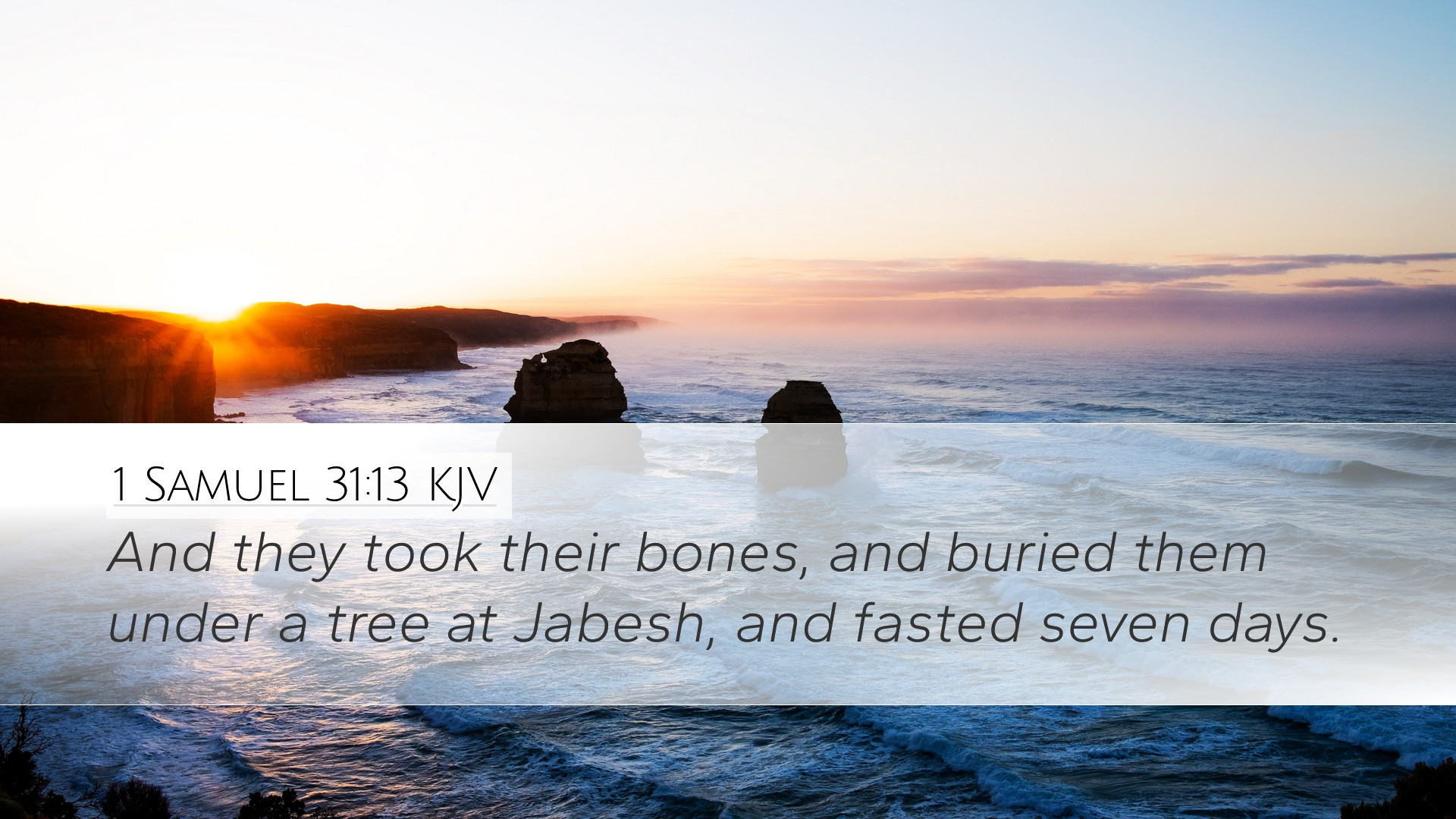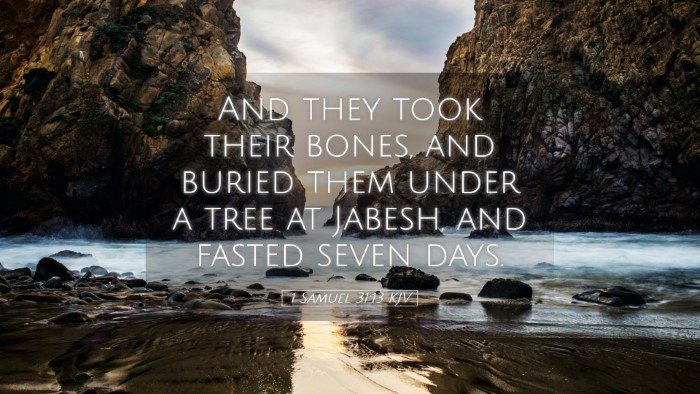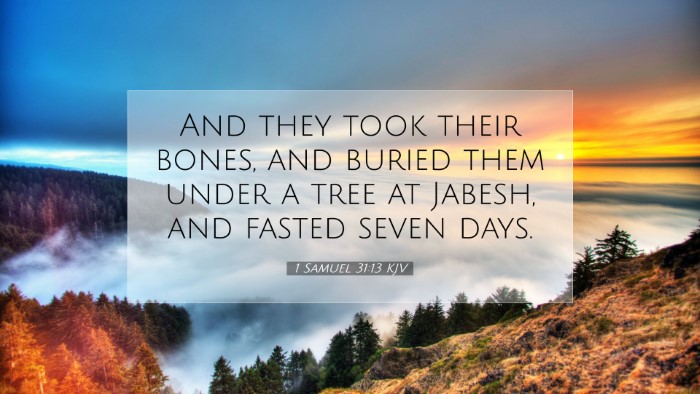Commentary on 1 Samuel 31:13
1 Samuel 31:13 states:
“And they took their bones, and buried them under a tree at Jabesh, and fasted seven days.”
Context and Background
This verse concludes the narrative of Saul and his sons, providing insight into the practices and attitudes of the Israelites towards their fallen leaders. The death of Saul marked a significant turning point in the history of Israel, and the treatment of his remains offers a profound commentary on honor, respect, and public mourning in ancient Israelite culture.
The Significance of Burial Practices
Burial practices in ancient Israel were profoundly spiritual and culturally significant. The act of burying the bones of Saul and his sons under a tree in Jabesh illustrates respect for the deceased, despite Saul's failures as a king.
- Public Mourning: The seven days of fasting underscore the deep respect the people had for Saul despite his failures. Fasting was not merely a ritual; it was a demonstration of grief and mourning.
- Honoring the Fallen: In ancient cultures, the manner of burial often reflected the status and deeds of the individual. Saul's death, though tragic, was met with respect from the people of Jabesh, emphasizing a cultural norm of honoring even those who had faltered in leadership.
Interpreting Saul's Legacy
Matthew Henry in his commentary observes that Saul, despite his disobedience and failure, was still recognized for his initial bravery and leadership in defending Israel against their enemies.
Adam Clarke emphasizes the importance of the geographical placement of the burial. Jabesh was the city that Saul once saved from the Ammonites, symbolizing that the people still valued the initial acts of loyalty and valor he had shown.
The Tree: A Symbol of Life and Death
The choice to bury the bones beneath a tree can be viewed as a metaphorical representation of life amidst death. Trees in Scripture often symbolize life and ongoing blessings, suggesting that Saul's story—though ultimately tragic—contributes to the greater narrative of God's sovereignty and the unfolding plan of redemption.
Fast and Fasting: Signs of Respect
Fasting for seven days highlights the depth of their sorrow. This ritual was essential in expressing their grief and aligning themselves with a posture of humility before God:
- Spiritual Reflection: The period of fasting provided an opportunity for the people of Jabesh to reflect on their king’s reign and their own failures, fostering a communal consciousness of repentance.
- Connection to God’s Will: Fasting often aligned the people with the will and intentions of God, facilitating an atmosphere of prayer and seeking divine guidance during a time of transition.
Lessons for Modern Believers
The account of Saul's burial and the mourning that followed offers valuable lessons for contemporary faith communities:
- Respect for Leaders: Even when leaders struggle or fail, it is important to retain a respectful disposition, recognizing their humanity and the complexity of their choices.
- Communal Grief: Mourning is a communal activity that should bring people together in support, understanding, and reflection—a practice that can lead to healing and restoration.
- Reflecting on Past Lessons: It serves as a reminder for believers to learn from leaders’ successes and failures, integrating those lessons into personal and communal living.
Conclusion
1 Samuel 31:13 provides a poignant conclusion to the story of Saul, portraying the complex interplay of honor, grief, and memory. The act of burying the fallen king and his sons beneath a tree in Jabesh is emblematic of the respect accorded even after failure, and a reminder for believers to consider the weight of leadership, the importance of community, and the graciousness of God throughout our collective histories.


